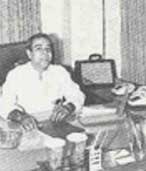Hidden feelings surface
 During the release of a commemorative volume on 35 Years of Indo-US Collaboration in Science and Technology, Union minister for science and technology P R Kumaramangalam sprang a surprise. In the presence of US assistant secretary for oceans and scientific affairs Elinor Constable, he criticised the US for "denying high-technology to developing countries"
During the release of a commemorative volume on 35 Years of Indo-US Collaboration in Science and Technology, Union minister for science and technology P R Kumaramangalam sprang a surprise. In the presence of US assistant secretary for oceans and scientific affairs Elinor Constable, he criticised the US for "denying high-technology to developing countries"
Despite several bilateral agreements, technological collaboration between the two countries has not been easy. The US has persisted in its demand that India increase its funding of these programmes and bring its intellectual property rights (IPR) laws in tune with that of the US. The Scientific and Technical Initiative (STI), signed in July 1982, which was aimed at "a limited number of high priority areas" in which "measurable progress could be made in a short period of time", has yet to take off because of differences of opinion on IPR.
STI and other ventures such as the Indo-US Commission for Science & Technology receive funds from the US under an Agreement on Public Law 480 and Other Funds. These are expected to cover joint S&T programmes between the two countries upto 1997. Officials of the ministry for science and technology now say that Constable made it clear the US expects guarantees on IPR as a pre-condition for a "comprehensive agreement to continue scientific and technical cooperation". Her reiterations to this effect at the ceremony provoked Kumaramangalam to respond: "Equal partners must not only share funding but also trust".
Ministry officials say they expect the US to be more insistent on a change in Indian IPR regulations. The US has suggested the scope of inter-governmental agreements be expanded to allow the private sector greater say. Says a ministry official, "American MNCs will be even more harsh in demanding changes in Indian patent laws and we have not even thought of our responses to them."
